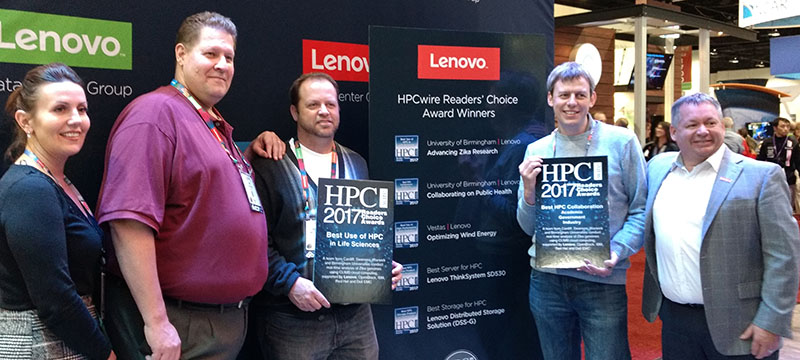
Research Support’s Birmingham Environment for Academic Research (BEAR) team has won two international awards for a High Performance Computing (HPC) project funded by the Medical Research Council.
The Cloud Infrastructure for Microbial Bioinformatics (CLIMB) project is a large OpenStack system distributed across four University sites, supporting over 200 research groups in the UK. The initial work on CLIMB was done by Simon Thompson and developed by Radoslaw Poplawski.
What is ‘microbial bioinformatics’?
Bioinformatics combines Computer Science, Biology, Mathematics and Engineering to analyse and interpret biological data. In microbial bioinformatics, the specific field being analysed is microbes – microscopic organisms such as fungi, bacteria or viruses.
How does CLIMB help with this?
CLIMB supports microbial bioinformaticians in their research. It provides access to high specification virtual machines, with up to 3 Terabytes of RAM (random-access memory) and 96 cores (independent processing units within a single computing component).
The awards
On 13 November 2017, CLIMB was recognised in the annual HPCwire Readers’ and Editors’ Choice Awards, winning awards for:
- Best Use of HPC in Life Sciences – for real-time analysis of Zika virus genomes; led by Professor Nick Loman, School of Biosciences
- Best HPC Collaboration (Academia/Government/Industry) – for providing resources for projects that globally impact public health
Lenovo’s Executive Director for High Performance Computing and Artificial Intelligence, Scott Teese, speaks very highly of the BEAR team in this short video – standing testament to the huge achievements of the team with this project.
Further information
You can read more about the awards on the BEAR blog. Alternatively, contact Simon Thompson, Research Support, for further information.
